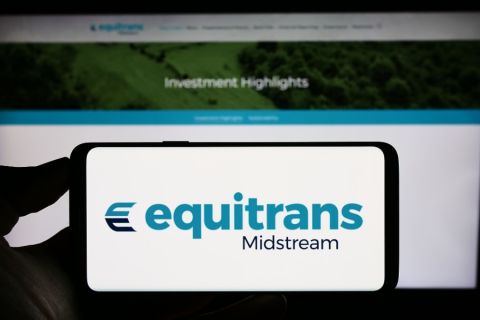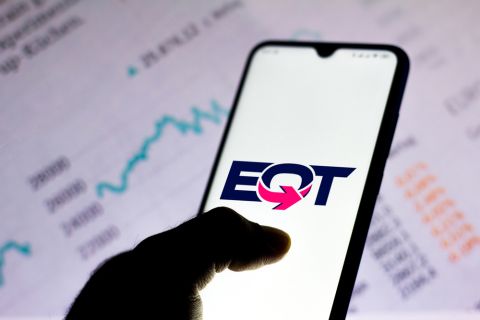 |
| ?“Become familiar with what is out there. If you don’t, then you could find yourself in trouble,” says Bob Cavnar, chief executive of Milagro Exploration LP. |
?The reason one business plan works while another stumbles can be as simple as a legal issue or as complex as trying to find financing.
In an improvisational question-and-answer session at Oil and Gas Investor’s recent “Energy Capital—The Workshop: Starting and Building an E&P Company,” potential start-up executives got advice on business plans, team-building, legal issues and what is the key for a plan to take shape.
“For us, assets were the key. We went to areas we knew,” said Bob Cavnar, chief executive of Milagro Exploration LP, a privately owned start-up based in Houston. “For us, it was the technology.”
Oil and Gas Investor recognized Milagro with its Financing of the Year Excellence Award in 2007 after the company raised some $825 million to purchase Gulf Coast assets from Petrohawk Energy Corp. Milagro completed a series of financings to fund the acquisition, and was represented by UBS Investment Bank.
Milagro is Cavnar’s latest start-up, having been involved with the development of Mission Resources and Mountain Gas Resources as well.
Cavnar and fellow panelist Graham Whaling, chief executive of Houston-based energy investment-banking firm Parkman Whaling LLC, as well as Alan Smith, managing director of Quantum Energy Partners and founder of Chalker Energy I, took questions from the more than 200 workshop participants.
Whaling started and sold Laredo Energy three times, creating Laredo Energy I in 2001 and selling it in 2003 for $110 million; Laredo Energy II was created in 2003 and sold for $232.5 million in 2005; and Laredo Energy III was created in 2005 and sold in 2007 for $235 million. All three were focused on a South Texas play.
Smith started Texas-focused Chalker Energy I and was chairman of Chalker Energy II, both portfolio companies of Quantum Energy.
Cavnar said one key building block is the initial business plan.
“Your business plan will serve many purposes and should be well developed, as potential business partners, employees and investors will use the plan to better understand your business and make important decisions, such as financing, based on the information outlined,” Cavnar said. “But be prepared for your business plan to change throughout the start-up process.”
The plan is a living document that must be able to change and adapt, he said. One trap start-up companies find themselves in is to have a business plan that is too rigid or one that doesn’t adapt to changes such as in market conditions.
Focus area. Whaling said to know your niche. “We picked a region where I could sell the assets that we grew. Know where you will build your assets and base them around a town or region. Become localized.”
Cavnar agreed it is important for a start-up company to select a specific region. “For us, we picked a region where I could sell the assets. Know the area. Know what is there. Become familiar with what is out there. If you don’t, then you could find yourself in trouble. And don’t become too broad in your approach. Have a narrow area to concentrate on.”
Whaling said that, after forming the business plan, “I began building the team.” The team and plan have equal importance. “You need a team that is focused on one trend. For us, the key was technology and having an experienced team.
“Our team had a strategy that we would be a pure drilling company. Our goal was to acquire the necessary 3-D seismic to help us reach our goal.”
He added that the group’s experience helped as well. In fact, their experience was critical to building the companies.
Meanwhile, as the company’s leader, “you have to determine your role.” If your most effective role in the company is not as chief executive, it is critical to find someone who has the know-how and experience to lead the company.
“This person will need to understand how to execute the milestones laid out in the business plan, be able to recognize potential problems, and make adjustments as needed,” he said. “You need someone you can work with and someone who can work with the other members of the team, as well as the board, and respond quickly to changing situations.”
Smith said that picking the staff is just as important as writing up a good business plan for would-be investors.
“Think long and hard about the talent that is out there,” he advised. “If you are weak in this area, you will probably stumble.”
The good board. Meanwhile, the company with a board that can react quickly to changing market situations has a strong foundation. The most effective board will be a group of professionals who bring a wealth of skills, experience and diversity. Ideally, Whaling said, members should have backgrounds and contacts that differ from—but complement—the background of the officers of the company and of the other directors.
s a company grows and changes, the governing board also should evolve to meet changing needs and circumstances,” Whaling said. “This evolution is critical to grow and succeed.”
Cavnar said the strength of the board can mean the difference between success and failure. “I have found that the board is the key to success.”
“Like your chief executive, it has to be able to respond very quickly. It has to be independent and it needs your trust and it needs to trust you. So, it’s kind of an odd relationship—but if put together correctly, it can be a very rewarding relationship for everyone.”
He added that a good board will provide continuity for the organization; govern by broad policies and objectives; and acquire sufficient resources for operations.
“You need a board that will run a board meeting like a board meeting and not a committee meeting,” Cavnar said. “A professional board can really make all the difference. The more professionally run, the better the board will function.”
Smith said it is important to trust the board. “When you’re in the grass and they’re at 35,000 feet, they get to see things a little differently than you do. You have to remember, they have a view of things different from you. They can see the big picture, while you are in the weeds. Have a board that will give you strong direction.
“But at the same time, have a board that you can trust and they need to trust that you will listen to them. They will be offering you advice and their views, and you will need to listen. Trust works both ways. You will need a board that can give you strategic decisions. They need to be able to see the big picture and the smaller details as well, and offer you their advice.
“You also want a board that will be independent.”
Board members need to have common traits, such as honesty, enthusiasm, open-mindedness, team playing, an ability to tackle complex problems with a certain amount of gusto, an orderly approach to decision-making, competency and a sense of humor.
The legal side. As for matters involving legal counsel, “get a good lawyer. But seriously, have your own lawyer. Have an advocate for yourself who will protect your rights in a deal,” Cavnar said.
“It’s going to cost you some dough, but it is money that is well spent. The most important thing is that you want someone who will protect your rights in any deal.”
Whaling advised that, when selecting an attorney, “find one that fits your style and will be there for you. You want the attorney to be on your side—and no one else’s. You want someone in your corner.”
For a start-up, Whaling added, some basic legal issues that have to be addressed are whether you are a corporation or a partnership, what will be the company’s ownership structure; whether the new company offers stock to the employees; and regulatory rules at the local, state and federal level that the new company will fall under.
Finding capital. For E&P start-ups, the search for capital can be successful—especially in a world of better than $100 oil and $8 natural gas. Cavnar said that if the foundation has been built correctly, it is easier than many think for start-up companies to find capital.
Whaling added, “If you have got a good idea, then you can fund it. There is a lot of money out there, if you are willing to look for it. But have your business plan and everything in order when you begin the search.
“Success will lead to success. Be prepared and you can find the capital.”
A start-up executive should not limit his options. Make up a list of capital sources, such as private-equity investors, banks, government programs and venture capitalists, Whaling said. After making the list, prioritize it as to what is the best source of funding and start at the top.
Cavnar said the start-up executive may have to look at non-traditional forms of funding, such as angel capital.
“There are a lot of non-traditional equity firms out there,” he said. “They are just looking for a good investment. If you have a good business plan, a talented team and a board of directors that is working with you, you will be surprised at the amount of capital out there.”
Smith said, “It’s out there. You just have to go out and find it.”
Recommended Reading
Equitrans Midstream Announces Quarterly Dividends
2024-04-23 - Equitrans' dividends will be paid on May 15 to all applicable ETRN shareholders of record at the close of business on May 7.
PrairieSky Adds $6.4MM in Mannville Royalty Interests, Reduces Debt
2024-04-23 - PrairieSky Royalty said the acquisition was funded with excess earnings from the CA$83 million (US$60.75 million) generated from operations.
Baker Hughes Awarded Saudi Pipeline Technology Contract
2024-04-23 - Baker Hughes will supply centrifugal compressors for Saudi Arabia’s new pipeline system, which aims to increase gas distribution across the kingdom and reduce carbon emissions
EQT Declares Quarterly Dividend
2024-04-18 - EQT Corp.’s dividend is payable June 1 to shareholders of record by May 8.
Matador Resources Announces Quarterly Cash Dividend
2024-04-18 - Matador Resources’ dividend is payable on June 7 to shareholders of record by May 17.





